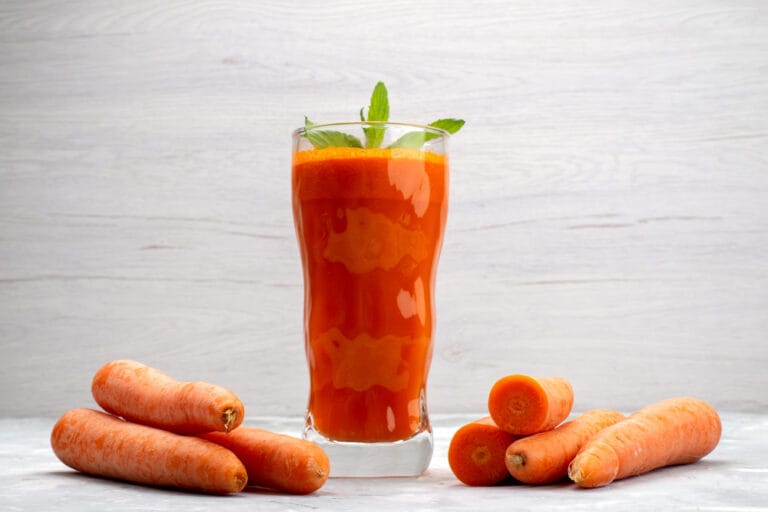FREE SHIPPING OVER $50
23 Nutrition Trends You Need to Know About (and Why You Should)
When it comes to nutrition, the internet is a goldmine of information—and a minefield of misinformation. With so many trends promising quick fixes, it’s easy to get swept up in the latest diet craze. But not all that glitters is gold. Let’s break down some of the most talked-about trends in nutrition, shedding light on what’s fact, what’s fiction, and what you should consider before jumping on the bandwagon.
Common Nutrition Trends

1. 100% Raw Diets
The allure of a raw food diet is strong, with promises of optimal health by consuming everything uncooked. Proponents argue that cooking destroys essential nutrients. While it’s true that some vitamins, like vitamin C, can degrade with heat, many nutrients become more bioavailable after cooking. For example, cooked tomatoes have more lycopene, a powerful antioxidant. Plus, some foods, like grains and beans, need to be cooked to remove harmful substances.
2. Weight Loss Teas
Who hasn’t been tempted by the promise of shedding pounds just by sipping tea? These teas often contain laxatives or diuretics, leading to temporary weight loss through water and waste loss, not fat. The danger lies in long-term use, which can lead to dehydration, electrolyte imbalances, and dependence on the products for bowel movements.
3. “You Eat Fat, You Get Fat.”
For years, fat was the villain in the nutrition world. But not all fats are created equal. Healthy fats from avocados, nuts, and olive oil are crucial for brain health, hormone production, and even weight management. It’s the trans fats and excess saturated fats that you want to avoid. So, don’t fear fat—just choose the right kind.
4. Apple Cider Vinegar Cures Everything
Apple cider vinegar (ACV) is touted as a miracle cure for everything from weight loss to acne. While ACV does have some health benefits, like aiding digestion and having antimicrobial properties, it’s not a magic bullet. Overconsumption can lead to enamel erosion on your teeth, and it’s not a replacement for a balanced diet or medical treatment.
5. High-Protein, Low-Fat Meals
The idea of packing on muscle with high-protein meals while cutting out fat sounds appealing. However, fat is essential for absorbing fat-soluble vitamins (A, D, E, K) and for overall cell function. Meals like chicken breast with fat-free cheese and no-carb wraps might seem healthy, but they can leave your diet nutritionally imbalanced.
6. Gluten-Free as a Marketing Tactic
The gluten-free label is everywhere, even on foods that never contained gluten to begin with. Unless you have celiac disease or a gluten sensitivity, there’s no need to avoid gluten. In fact, many gluten-free products are more processed and contain less fiber and nutrients than their gluten-containing counterparts.
7. Extreme Keto Diets
The ketogenic diet, which involves high fat and low carbs, has been around for a while, but some take it to extremes with diets heavy in butter and beef. While the diet can be effective for weight loss and managing certain medical conditions, loading up on saturated fats can increase your risk of heart disease. Balance and variety are key.
8. The Carnivore Diet
A diet that consists only of meat might sound extreme, and it is. The carnivore diet eliminates all plant-based foods, leading to potential deficiencies in fiber, vitamins, and minerals. While you might see short-term weight loss, the long-term health consequences are concerning, including increased risk of heart disease and digestive issues.
9. Avoiding Fruits Due to Fructose
Some diet trends demonize fruits because of their fructose content. While fructose in high amounts (like in soda) can contribute to health issues, the fructose in fruit comes with fiber, vitamins, and antioxidants that are beneficial. The idea of avoiding fruit to stay healthy is misguided—fruits are an important part of a balanced diet.
10. The Standard American Diet (SAD)
The aptly named Standard American Diet is high in processed foods, sugars, and unhealthy fats, contributing to the obesity epidemic and chronic diseases. While convenient, this diet lacks the nutrients your body needs to thrive. Instead of following the SAD diet, focus on whole foods, lean proteins, and plenty of fruits and vegetables.
11. Veganism Forced on Everyone
Veganism has its health benefits and ethical considerations, but it’s not for everyone. Some people thrive on a plant-based diet, while others may struggle to get enough protein, B12, or iron. It’s important to find a diet that works for your body and lifestyle without feeling pressured to conform to a trend.
12. Fake Vegans
There’s a rise in “fake vegans”—people who adopt a vegan diet for the trend, rather than for health or ethical reasons. These individuals may not fully understand the nutritional needs of a vegan diet, leading to poor health outcomes. If you’re considering veganism, do your research and make sure you’re getting all the necessary nutrients.
13. The Croissant Diet
This trend sounds delicious but is nutritionally questionable. The croissant diet involves consuming mostly croissants and other pastries, relying on high-fat, high-carb foods. While it might be fun for a day or two, this diet lacks the nutrients needed for long-term health and can lead to weight gain and other health issues.
14. Juice Fasts
Juice fasts are popular for “detoxing,” but they often do more harm than good. While they might help you lose water weight, they deprive your body of essential nutrients like protein and fat. Plus, juice fasts can lead to blood sugar spikes due to the high sugar content. Instead of fasting, consider a balanced diet rich in whole foods for sustainable health.
15. The Cabbage Soup Diet
This diet is a relic from the past, promising quick weight loss by eating mostly cabbage soup. While you might shed a few pounds, it’s mostly water weight, and the diet is not sustainable. It’s also low in essential nutrients, leaving you feeling tired and deprived. For lasting results, opt for a balanced diet with plenty of variety.
16. The GOMAD Diet
The GOMAD (Gallon of Milk a Day) diet is popular among bodybuilders looking to bulk up. While it can help with muscle gain due to the high protein and calorie content, it can also lead to digestive issues, high cholesterol, and unnecessary fat gain. A more balanced approach to protein and calorie intake is recommended.
17. The Idea that All Calories Are Equal
The concept that “a calorie is a calorie” is hotly debated. While it’s true that a calorie is a unit of energy, not all calories have the same effect on your body. For example, 100 calories of candy will affect your blood sugar differently than 100 calories of vegetables. The source of your calories matters for your overall health and how your body processes them.
18. The “Inner” Shower Drink
This trend involves drinking a mixture of chia seeds in water, often touted for “cleansing” your insides. While chia seeds are a great source of fiber and omega-3s, this drink won’t miraculously detox your body. Your liver and kidneys already do a great job of detoxing naturally. Incorporating chia seeds into a balanced diet is a better approach.
19. Lemon Water for Detoxing
Starting your day with lemon water has become a morning ritual for many, believing it detoxifies the body. While lemon water is hydrating and a good source of vitamin C, it doesn’t detoxify your body. The real benefit is that it encourages you to drink more water, which is always a good thing for overall health.
20. Butter in Coffee to Burn Fat
The idea of adding butter to coffee, known as bulletproof coffee, has gained traction as a way to boost fat loss and energy. While it can provide a steady energy release, it’s also high in calories and saturated fat. If you’re not careful, it can contribute to weight gain rather than weight loss. Moderation is key here.
21. Magnesium Water for Better Sleep
Magnesium is known for its calming effects, and drinking magnesium water is touted as a way to improve sleep. While magnesium can help with sleep, you can also get it from food sources like leafy greens, nuts, and seeds. Magnesium water can be a helpful supplement, but it’s not a cure-all for sleep issues.
22. “Feeling More Energy” as Proof of a Diet’s Success
Many diet enthusiasts claim that feeling more energetic is proof that their diet is working. However, feeling more energy can result from various factors, including placebo effect, improved sleep, or simply consuming more calories. It’s important to look at the bigger picture—long-term health outcomes—rather than just short-term energy boosts.
23. Consuming 1 to 2 Grams of Protein Per Pound of Body Weight
Bodybuilders and fitness enthusiasts often follow the rule of consuming 1 to 2 grams of protein per pound of body weight for muscle gain. While protein is essential for muscle growth, this amount might be excessive for most people and can strain the kidneys over time. It’s best to consult with a nutritionist to determine the right amount of protein for your individual needs.
Conclusion
Nutrition trends can be tempting, but true wellness lies in balance and moderation. Before diving into the latest craze, it’s crucial to do your homework and weigh the potential risks and benefits. After all, what works wonders for one person might not be the best for another. Have you ever been caught up in any of these trends, or is there one I didn’t cover that you’ve encountered? I’d love to hear about your experiences—share your thoughts in the comments below!







